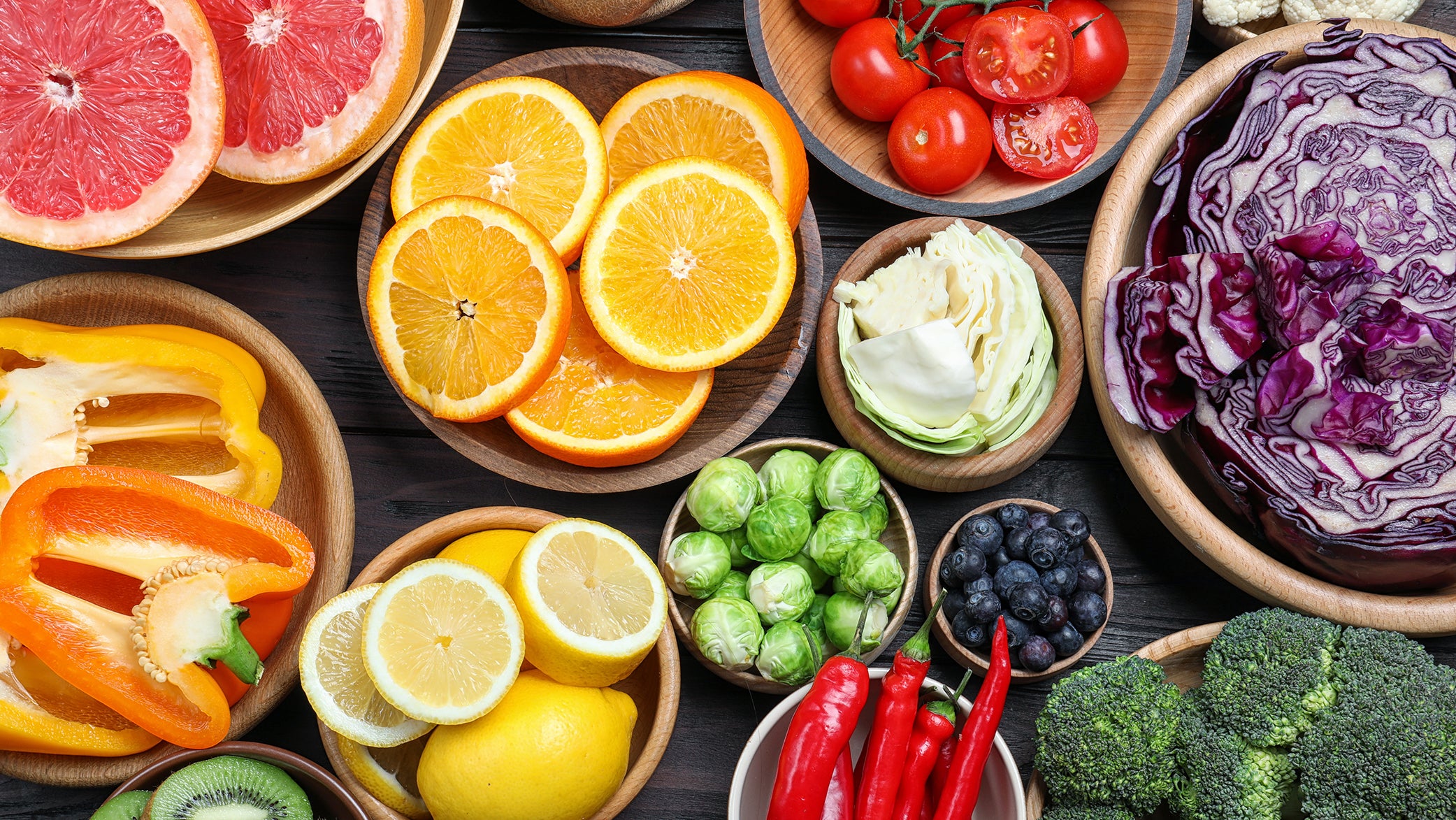
Now that we’ve tackled macronutrients, let’s talk micronutrients. Micronutrients are equally important but required in much smaller amounts than macronutrients. Good news is that choosing whole, nutrient dense plant-based foods will help you to get a balance of both.
Here’s a list of important micronutrients including their role in your health and the foods you can find them in.
VITAMIN A
Vitamin A contributes to the normal function of the immune function.1
You’ll find Vitamin A in fruits and vegetables such as carrots and leafy greens.
VITAMIN B (B1, B2, niacin, biotin, pantothenic acid, B6, B12, and folic acid)
Find them in whole grains, beans, avocados, leafy greens, quinoa, and seeds.
VITAMIN B 12
Slightly harder to find on a plant-based diet, B12 aids in red blood cell formation. 1
Good news is you can find B12 in nutritional yeast and Vega One® All-in-One Shake.
VITAMIN C
Vitamin C is a dietary antioxidant that protects against the oxidative effects of free radicals.1 Vitamin C is also a factor in the development and maintenance of bones, cartilage, teeth and gums.
Look for vitamin C in citrus fruits, red bell peppers, and strawberries.
VITAMIN D
Vitamin D enhances calcium and phosphorus absorption and utilization. 1 It is also a factor in the formation and maintenance of bones and teeth. Your body can synthesize its own vitamin D when exposed to sunlight. But if you’re working inside all day, or live at a northern latitude, a supplement can be beneficial.
Vitamin D can be found in nutritional yeast and UV-exposed mushrooms.
IRON
Iron forms your red blood cells, which deliver oxygen throughout your body. 1 Symptoms of low iron levels are fatigue, difficulty concentrating and reduced athletic performance.
Spinach, legumes, and pumpkin seeds are plant-based sources of iron, and all are best paired with vitamin C rich foods to support iron absorption. If you have chronically low levels of iron, you should speak to a health professional about supplementing further.
CALCIUM
You don’t need dairy to get enough calcium in your diet to build and maintain strong bones. There are plenty of plant-based foods that contain calcium including almonds, broccoli, black and navy beans.
MAGNESIUM
Magnesium is an essential mineral that contributes to normal muscle function and is a factor in energy metabolism, tissue formation and bone development. 1
Help get your magnesium needs met with whole foods including pumpkin seeds, sunflower seeds and almonds.
Take the worry out of wondering if you’re getting enough of certain micronutrients with Vega® Essentials which provides you with 40% DV Vitamin C.
References:
- Government of Canada,Canadian Food Inspection Agency, & Food Safety and Consumer Protection Directorate. (2019, October 31). Government of Canada / Gouvernement du Canada. Retrieved from https://www.inspection.gc.ca/food-label-requirements/labelling/industry/health-claims-on-food-labels/eng/1392834838383/1392834887794?chap=9#s16c9
Related Articles
-
 Read article
Read articleProtein Made Simple. The name says it all.
The protein powder aisle can be an intimidating place, especially if you’re looking to try something...
-
 Read article
Read articleEating for Cold Weather
Warming Foods and Spices The weather might leave you feeling cold and chilly, but there are...
-
 Read article
Read articleHow to Roast Vegetables in the Oven
Follow this guide to learn how to roast vegetables to perfection.








